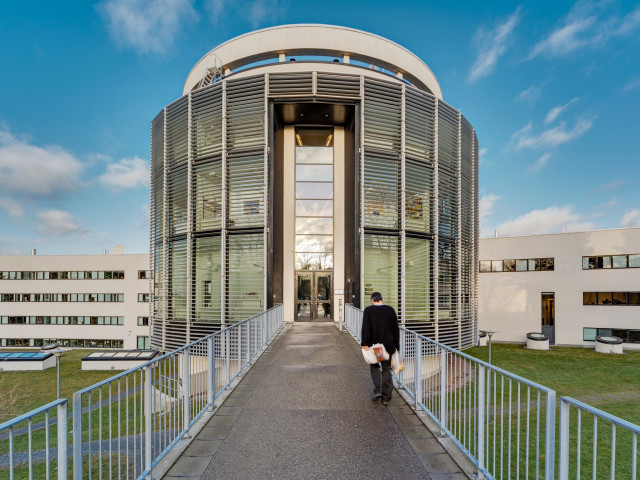Second quantization, the electron gas, boson and fermion systems, electron-phonon interactions, superconductivity, transport theory, mesoscopic physics, quantum Hall effect, Kondo effect and heavy fermions.
SI2600 Condensed Matter Theory 7.5 credits

This course in condensed matter theory treats central principles and computation methods, and covers some of the most recent research problems in the area. The approach is towards reaching important results by direct and intuitive methods, and avoiding unnecessary mathematical complexity. The course focuses on the quantum mechanical treatment of the solid state and covers many problems of current interest such as superconductivity, mesoscopic physics, and the quantum Hall effect. The course discusses methods for computation and making interesting predictions for some of the many complex phenomena that occur in solids and quantum liquids. The course is aimed primarily at advanced undergraduate students and PhD students in physics and related areas. The course is also aiming at scientists working with applications on electrical properties of materials.
Information per course offering
Information for Autumn 2025 Start 27 Oct 2025 programme students
- Course location
AlbaNova
- Duration
- 27 Oct 2025 - 12 Jan 2026
- Periods
Autumn 2025: P2 (7.5 hp)
- Pace of study
50%
- Application code
51470
- Form of study
Normal Daytime
- Language of instruction
English
- Course memo
- Course memo is not published
- Number of places
Places are not limited
- Target group
- No information inserted
- Planned modular schedule
- [object Object]
- Schedule
- Part of programme
- No information inserted
Contact
Course syllabus as PDF
Please note: all information from the Course syllabus is available on this page in an accessible format.
Course syllabus SI2600 (Spring 2022–)Content and learning outcomes
Course contents
Intended learning outcomes
After the course you should be able to:
- Formulate the many particle problem in second quantized version.
- Use theoretical methods for the many body problem to solve problems covered in the course.
- Give an account of the problems in the area that are treated in the course.
Literature and preparations
Specific prerequisites
English B / English 6
Recommended prerequisites
Introductory courses in solid state physics (Kittel level), quantum mechanics and statistical physics are required. Quantum mechanics advanced course SI2380 and Statistical physics SI2510 are recommended.
Literature
Examination and completion
Grading scale
Examination
- INL1 - Assigment, 4.5 credits, grading scale: A, B, C, D, E, FX, F
- TEN1 - Examination, 3.0 credits, grading scale: A, B, C, D, E, FX, F
Based on recommendation from KTH’s coordinator for disabilities, the examiner will decide how to adapt an examination for students with documented disability.
The examiner may apply another examination format when re-examining individual students.
If the course is discontinued, students may request to be examined during the following two academic years.
Other requirements for final grade
Homework problems (INL1; 4,5 university credits) and oral examination (TEN1; 3 university credits).
Examiner
Ethical approach
- All members of a group are responsible for the group's work.
- In any assessment, every student shall honestly disclose any help received and sources used.
- In an oral assessment, every student shall be able to present and answer questions about the entire assignment and solution.